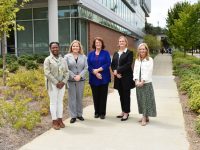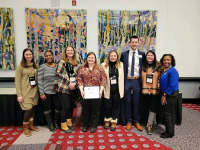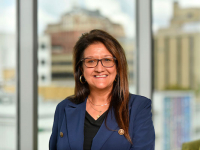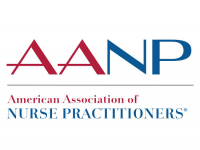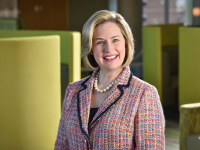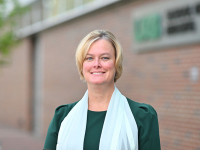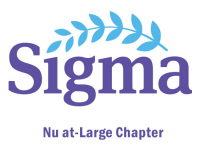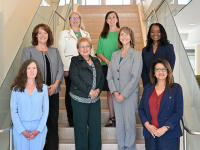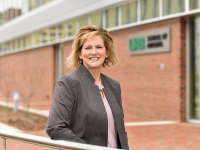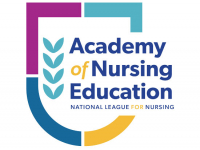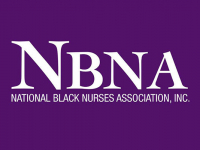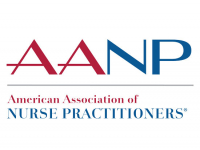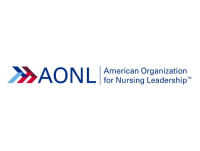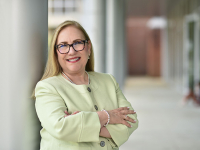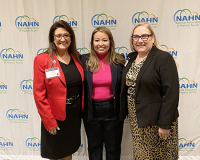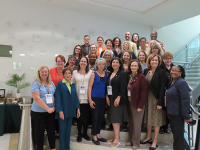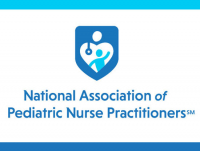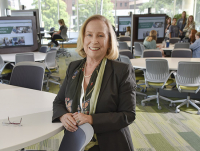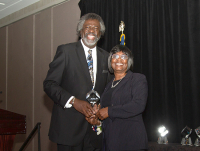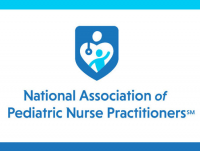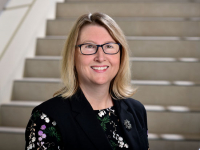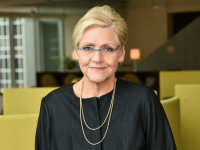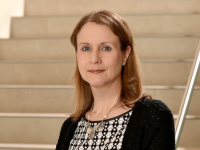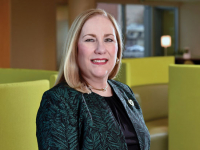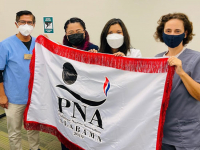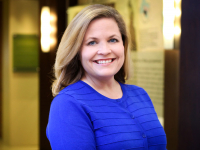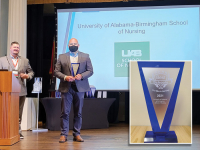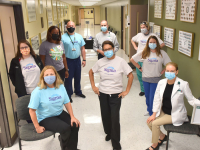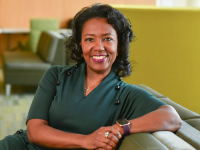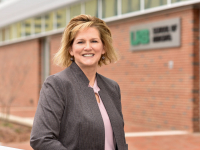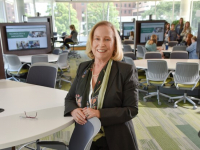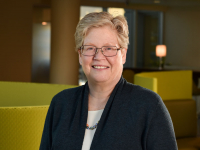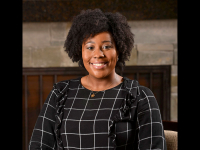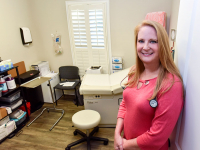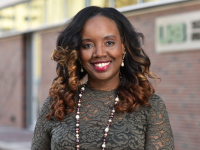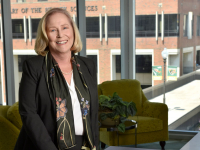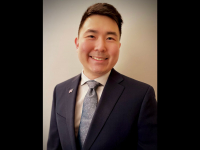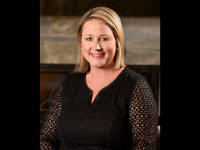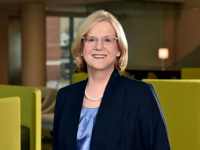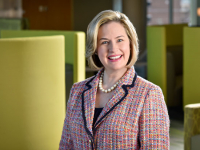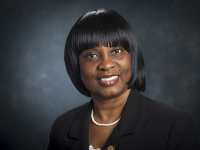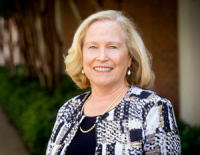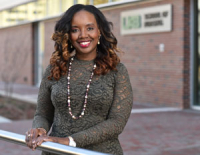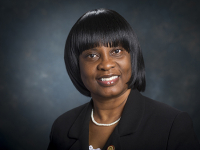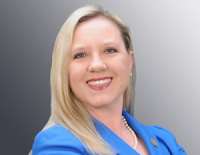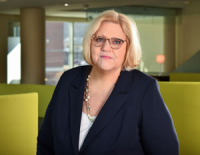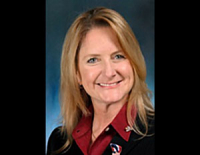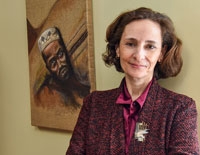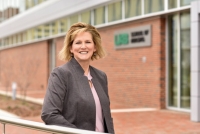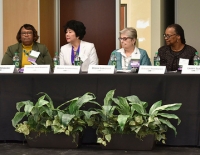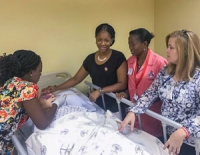 By Hunter Carter
By Hunter Carter
University of Alabama at Birmingham School of Nursing Associate Professor Martha A. Dawson, DNP, RN, FACHE (BSN 1976, MSN 1984), has been re-elected as president of the National Black Nurses Association Inc. for a second term.
The NBNA’s mission is “to serve as the voice for Black nurses and diverse populations, ensuring equal access to professional development, promoting educational opportunities and improving health.” NBNA is an inclusive organization with members from different races, ages, genders, countries and ethnicities.
Dawson is the 13th president of NBNA and is a member of the Birmingham Black Nurses Association chapter of NBNA. She was sworn in for her second term at the 49th annual NBNA Institute and Conference, held virtually in early August.
“My main goal, and the overall mission of the NBNA, is to continue to promote the NBNA by focusing on the need to diversify and grow the nursing workforce and addressing the political and social determinants of health,” said Dawson. “I have five pillars that I look to continue to build upon in my second term: membership support and engagement; advocacy and service; diversity, inclusivity and equity; workforce expansion and growing membership; and leadership succession and operation stability.”
Dawson’s first term saw a number of successes, including more educational support for its members, with NBNA providing more than $300,000 to 45 of its members, helping cover tuition, books and other needs. In addition, local chapters of NBNA awarded more than $200,000 in scholarships. Her first term also saw increased membership and more chapters being established across the country. In 2020 and 2021, the NBNA added seven chapters, including the first chapter in Oregon.
“The successes NBNA has had over the past two years represents collaboration among myself, the NBNA board, our chapters, members and corporate partners,” she said “The new chapters and the growth of our other chapters, such as the Birmingham Black Nurses Association, led to our largest membership growth in the history of the association.”
As president of NBNA, Dawson also serves humanitarian aid organization Direct Relief’s Fund for Health Equity, which provides financial support to community health centers, clinics and community-based organizations that address the social determinants of health. As a member of that advisory board she helped to bring $500,000 to the state of Alabama, through the Alabama AHEC program and the Spirit of Luke, a nonprofit that serves the Black Belt addressing health inequities.
Like many other nursing organizations across the country, the NBNA has been impacted by the COVID-19 pandemic. Working to help nurses through the physically and mentally draining obstacles that the pandemic brought, Dawson and the NBNA created several initiatives focused on mental health and well-being.
“We started the ‘RE:SET and RE:THINK’ initiatives as a way of supporting our and other nurses to encourage routine and COVID vaccinations,” said Dawson. “Another national initiative was the convening of the National Black Coalition Against COVID, which seeks to educate and aid individuals wanting to learn more about COVID-19 and the vaccines currently available. I am happy to say that we have been able to impact over 5 million individuals across the county.”
Throughout the pandemic, NBNA also has engaged in educational efforts addressing misinformation and disinformation about COVID-19. Members have collaborated with health departments, physicians, hospitals, nursing homes and long-term care agencies, and incarcerated facilities to assist communities. They have also hosted multiple pop-up vaccination clinics to reduce barriers to vaccination.
Looking toward the future, Dawson plans to focus on increasing the membership numbers, especially in the under 40 age group. In 2020, the NBNA took a step toward this goal with the “Student Connect” initiative, which sought to help nursing students engage with other nurses in the organization. To date more than 500 students are participating. Dawson also looks to increase diversity across nursing and health care.
“My work to increase the representation of African American and other diverse nurses in the profession will continue through the NBNA Mini Nurse Academy and our initiative to promote and support nurse entrepreneurs,” said Dawson. “I will also continue my national work with the National Commission Addressing Racism in the Nursing Profession, of which I am one of five co-leads. We will continue to support advance education of our members and increase their placement on local, state, and national boards.”
Dawson earned her bachelor of science in nursing and her masters of science in nursing from the UAB School of Nursing in 1976 and 1984, respectively. One of the areas she appreciated with her UAB education was the strong focus and curriculum on research in both her programs.
“My formal education at the UAB School of Nursing undergraduate and graduate programs provided a solid foundation in clinical nursing and administration education,” said Dawson. “My master’s program allowed me to graduate with a dual degree as a clinical nurse specialist in cardiovascular and nursing administration with a certificate in hospital administration from the UAB School of Health Profession. UAB was ahead of the curve with interprofessional education.”
In addition to president of NBNA, Dawson is a member of, or has served in leadership roles in, local, state and national organizations including, the American Organization of Nurse Leaders, American Nurses Association, American Association of Men in Nursing, American Hospital Association and The Future of Nursing Diversity Taskforce. She also is the former chief nursing officer and vice president of operations at the University of Louisville and served in various senior positions at Duke University. She credits education and administrative experiences for preparing her for her role as president of NBNA.
Among the many accolades Dawson has received throughout her career as a leader and innovator in nursing she was named one of 70 Visionary Leaders in the UAB School of Nursing in 2021. She has also received the UAB President Excellence in Teaching Award, UAB Dean’s Mentorship Award and, in 2019 was named into the Alabama Nursing Hall of Fame.

